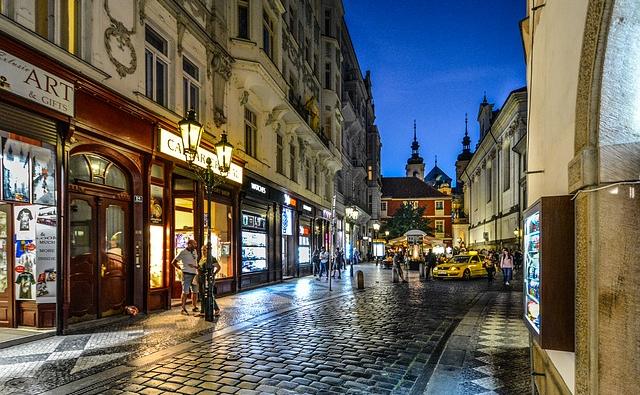Country Profile — Czech Republic
Part of Czechoslovakia until the "velvet divorce" in January 1993, the Czech Republic has a robust democratic tradition, a highly-developed economy, and a rich cultural heritage.
It emerged from over 40 years of Communist rule in 1990, and was the first former Eastern Bloc state to acquire the status of a developed economy. It joined the European Union in 2004.
Communist rule had lasted since 1948, when the restored pre-war democratic system was overthrown in a Soviet-backed coup. The "Prague Spring" of 1968, when Communist leader Alexander Dubcek tried to bring in liberal reforms, was crushed by Warsaw Pact tanks.
In 1989, as the curtain was coming down on communism in the Kremlin, the dissident playwright Vaclav Havel emerged as the figurehead of the country's "velvet revolution" and became the first president of post-communist Czechoslovakia.
Facts
- Czech Republic
- Capital: Prague
- Population: 10.6 million
- Area: 78,866 sq km (30,450 sq miles)
- Major language: Czech
- Major religion: Christianity
- Life expectancy: 75 years (men), 81 years (women)
- Currency: koruna

Private radio and TV stations provide stiff competition for their public rivals.
Public broadcaster Ceska Televize (CT) operates two TV networks and a 24-hour news channel. Public radio, Cesky Rozhlas (CRo), operates three national networks and local services.
Leading private TV channels Nova and Prima are foreign-owned and broadcast nationally. There are scores of privately-owned radio stations, including market leaders Impuls and Frekvence 1. BBC World Service is available on FM in many cities and towns.
The global recession in 2008 began a process of the media returning to Czech ownership. In early 2014, Forbes.cz noted that eight out of the ten most influential figures in the media were Czech or Slovak.
Most papers' paid-for circulations have practically halved over the last decade or so. Most titles have become 'prestige' projects for their owners, who have their own commercial and/or political agendas.
In its most recent Freedom of the Press report, watchdog Freedom House gave the country a better ranking than France and the UK. Some Czech commentators questioned this positive scoring in view of media ownership becoming more concentrated and media barons getting involved in politics.
Around 8.3 million Czechs were online by 2014 (internetlivestats.com). Around 30% of Czechs were using social media by 2013, with Facebook being the leading platform. Lide.cz is a domestic social media site. YouTube.cz is a popular entertainment source for younger Czechs. In June 2013 a study showed that those in the 15 - 34 age range watched it more than any domestic TV channel apart from Nova.
Source BBC
For more media information contact Yvonne Foster:
07752492816